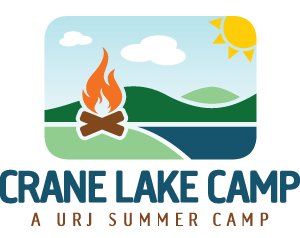A Series of Recollections by John Bormolini and Friends. This article was originally printed in West Stockbridge’s monthly newsletter, the Local Yokel. Reposted with permission.
Until 1954, Crane Lake Camp (CLC), one of the many camps in the Berkshires, was owned and operated by George Kaplan. Then it was sold to Ed Ulanoff, his wife Barbara, and his brother Stan. The camp flourished under Ed’s leadership. Ed used his love of physical education as the foundation for camp life. Ed and Barbara were loved by all who came into contact with them. To help homesick campers, Ed would buy dogs and bring them to camp. By the end of summer, all of the dogs were adopted by campers’ families or staff members. In 1998, CLC was sold to the Union for Reform Judaism where it has continued to flourish.
To many West Stockbridge residents, the camp presented an opportunity to earn some money. Some off-season work was also done by residents Jim Salvi and John Capelli. Preparation for the July opening of camp began in mid-May and continued into June. Docks were moved from winter storage on shore into the lake. Back then, the only swimming location was the lake. In the 1990s, a pool was built at the upper portion of the camp.
Steve Salvi, who worked there in the mid-1950s, said, “During those days it was hard to find a summer job in West Stockbridge. CLC was good money—the work wasn’t too hard and filled up the whole summer. I mostly worked in maintenance.”
Additional staff arrived after Memorial Day. To many, it was an opportunity to get out of the sweltering city heat and enjoy the slower pace of the Berkshires and the tranquility of beautiful CLC.
Campers arrived around July 4, many driven by their parents. In the 1950s, campers could take a special passenger train from New York City to West Stockbridge. The arrival of the campers was a festive event for our town. Campers got off the train enthusiastically and transferred to vans while their luggage was loaded on trucks for the short trip to CLC. Many residents came to the depot to watch the train arrive and off-load the campers. In many ways, it was a celebratory event welcoming the campers to “Our Hometown.”
From Peter Angelini comes a remembrance with a twist: “The year was 1957. I worked in June helping open the camp. I agreed to the following pay with the Ulanoffs: $60 for June, $65 for July, and $70 for August. When the third monthly payday came, the amount was $65. To compensate for the shortage, I suggested I be given a defunct rowboat by the lake [which] I saw before camp opened. They agreed, along with two paddles. Somehow, I got it to my house using my wagon. I completely resealed and re-varnished the bottom of the boat following instructions in my Boy’s Life magazine. When I finished the repairs, I took it to Mill Pond behind Josie Maserio’s variety store, using my wagon. When I launched the boat, it sank like a rock before I ever got on board. I should have known I wasn’t going to beat Stan and Ed out of anything. At least I still had the two paddles!”
From Louise Faggioni (Pericolosi): “I worked there at age 15. I had no transportation, so the camp sent someone to pick me up and take me home daily. I always worked in the kitchen. I did food prep, cutting up all kinds of foods, lots of vegetables and fruits. My buddy in the kitchen was Rosie Delmolino, Bob Romeo‘s grandmother. Anna Bormolini and Lorenza Panzeri also worked there. It was actually a good place to work.”
From Anita Norton (Zanconato): “In 1956, I babysat for Stan Ulanoff’s youngest daughter, Dory. She was about 2 years old. A girl named Betsy babysat the older ones. Betsy and I became good friends, and at the end of camp we became pen pals. We wrote for many years.”
During the summer, a few campers would venture into town as part of a special outing. From Judie Bodnar (Masiero): “A bunch of us kids were regularly hanging out. One early summer evening, a few campers came down to Main Street. We all must have been preteen or young teenagers. I remember being embarrassed. They made us feel like such a bunch of dummies because these city kids were way beyond us country bumpkins. They were making fun of us because not one of us could name the boroughs in New York City. I didn’t even know what that word meant. We were teased pretty badly, but thinking back on it now I think the campers were just showing off as young people do at that age.”
Today, CLC is alive and thriving every summer as it has done for over a century. For many of us, CLC played a memorable role in our lives in the 1950s in West Stockbridge, our hometown!
John Bormolini is a West Stockbridge “ex-pat,” now residing in Leavenworth, Kansas.
